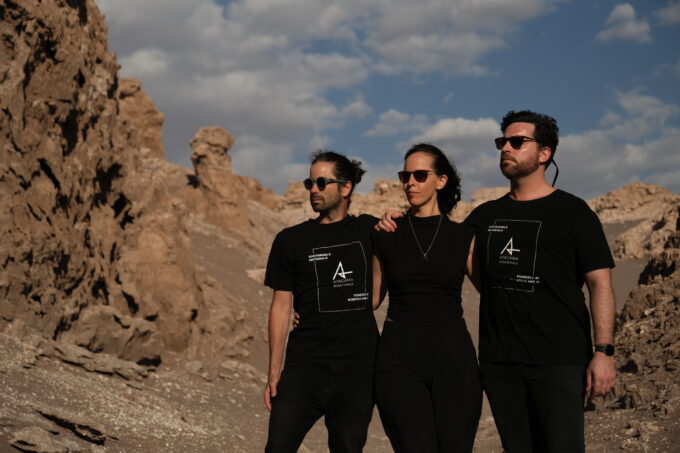More than one-third of the 460+ million tonnes of plastic produced each year is used for packaging—meaning that addressing packaging’s reliance on plastics is critical for decarbonizing the manufacturing industry and tackling plastic pollution.
To do this, we need new packaging materials that are affordable, easily sourceable, and sustainable from their creation through their end of life.
Hera Materials (formerly Atacama Biomaterials) is developing a game-changing solution to this challenge. The startup creates regenerative plastics from local biomass that are paper-recyclable or compostable, and made via a low-heat manufacturing process that’s carbon-free when powered with renewable electricity.
The fact that this tech can be recycled as paper rather than plastic is crucial for circularity, as paper’s recycling rate of 68 percent dwarfs plastic’s rate of 5 to 6 percent, according to the World Economic Forum.
“We wanted to create a material that would be integrated into existing infrastructure, but also have an economically feasible value chain,” says Paloma Gonzalez-Rojas, Hera Materials’ CEO and co-founder.
Hera Materials’ solution—named Woodpack, or WPk for short—is made from regionally available biomass, including recycled paper and sugars from agricultural waste. These materials are plentiful and low-cost, offer reliability in terms of supply-chain management, and cut shipping emissions. The startup’s AI platform, MarieCurie, allows it to integrate this array of biomass by ensuring that WPk produced anywhere is delivered with the same set of material properties, regardless of specific regional biomass used. MarieCurie can even “enhance” particular properties of the regenerative plastic based on customers’ needs.
Gonzalez-Rojas and her co-founder, Jose Tomas Dominguez, have oriented their manufacturing plan around scalability as well. Hera Materials uses robotics to change paper mills into machines that manufacture the startup’s material—picture “combining a paper mill with a 3D printer,” Gonzalez-Rojas says. The founders explain that plenty of these machines are available for conversion due to decreasing demand for print reading materials and increasing demand for paper packaging.
Hera Materials projects that if its tech is deployed at scale, it will be able to mitigate about two gigatons of CO2 annually by 2035.
The startup is initially focusing on packaging for the food, pharmaceutical, and retail industries. WPk was validated via a pilot project with Roche Pharmaceuticals, and Hera Materials is co-developing a plastic-free packaging replacement to maximize food’s shelf life with McCormick & Company.
Current priorities for Hera Materials include scaling production of its tech as it ramps up commercial sales and building a demonstration production line to conduct large-scale pilots. The 15-person startup is also raising its seed funding; interested investors can get in touch here.
Hera Materials spun out of MIT, where Gonzalez-Rojas completed a Ph.D. in machine learning, and she says she “saw urgency in replacing plastics due to pollution.” Gonzalez-Rojas and Dominguez, who are both Chilean, initially named their company after Chile’s Atacama Desert—which in recent years became a dumping ground for up to 59,000 tons of cast-off clothing.
The startup joined Greentown Labs in February 2024, and quickly got to work in the prototyping lab.
“The biggest advantage of Greentown has been having access to a manufacturing-ready space,” Dominguez, the startup’s CTO, says. “Greentown manages all the challenges of having a small-scale factory, and I think that’s pretty unique.”


